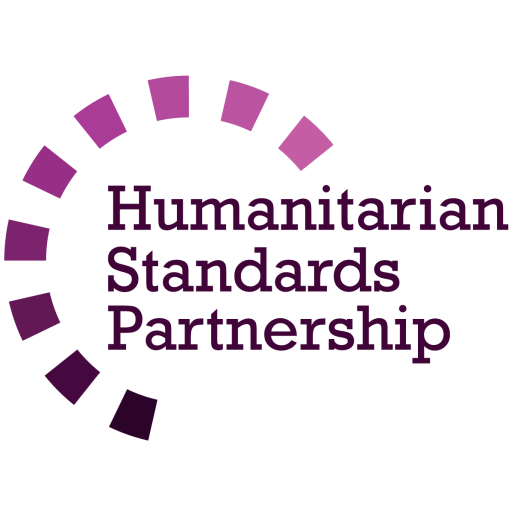HSP History
Sphere Project and INEE become companions
The HSP traces its roots to the Companionship Agreement entered on 23 October 2008 by the Inter-agency Network for Education in Emergencies (INEE) and the Sphere Project, then managed by Alison Joyner and hosted by the IFRC.
October 2008
Protection Principles and The Core Standards
The Humanitarian Charter was introduced in the 1998 pilot edition of the Sphere Handbook. In the third edition (2011), two additional chapters were added: Protection Principles and The Core Standards.

April 2011
LEGS and MERS accepted as companion standards
The Livestock Emergency Guidelines and Standards (LEGS) and the Small Enterprise Education and Promotion (SEEP) Network’s Minimum Economic Recovery Standards (MERS) were both accepted as companion standards by the Sphere Project Board at its 18-19 May meeting in Johannesburg.
May 2011
CPMS becomes a companion
Companionship was approved by the Sphere Project Board in their 15-17 May meeting in Geneva. The decision acknowledged the quality of the Child Protection Mainstreaming Standards (CPMS) as well as the broad consultative processes that led to their development. The CPMS handbook was developed by the Child Protection Working Group (CPWG).
The companionship agreement was signed on 30 May 2013 by John Damerell, Sphere Project Manager, and Katy Barnett, CPWG Coordinator.
May 2013
Sphere Project Board endorses formalisation of a global standards alliance
Christine Knudsen was appointed Sphere Project Director in September 2014, officially taking over from Linda Poteat at the November Board Meeting in Delhi.
One of Christine’s first actions was to elaborate an organisational strategy for the next five years, including:
“Priority 4: The progressive formalisation of a global standards alliance will improve coordinated action, allowing humanitarian standards to better influence humanitarian response, building greater ownership by individuals, communities and organisations.”
January 2015
CALP Network joins the Sphere companion standards family
The Sphere Board granted companion status to the Minimum requirements for market analysis in emergencies developed by the Cash Learning Partnership (as they were called at the time), and endorsed the creation of a humanitarian standards partnership.
December 2015
Announcing the HSP and a common foundation
Cassie Dummett, on becoming the first HSP coordinator, wrote about her excitement to be working with six leading standards-setting initiatives as they deepened their collaboration to jointly promote use of humanitarian standards including their shared foundation: the Humanitarian Charter, the Protection Principles and the recently-released Core Humanitarian Standard (replacing The Core Standards).
May 2016
The Humanitarian Standards Partnership (HSP) gets a logo!

October 2016
Sphere Board invites the Age and Disability Capacity Programme (ADCAP) to apply for HSP membership
Sphere became a non-profit association in late 2016, and the first meeting of the Sphere Executive Board took place in Brussels on 17 to 18 May 2017.
The ADCAP was a time-bound project of which one output was the Humanitarian Inclusion Standards for Older People and People With Disabilities (HIS), which would go on to be hosted by HelpAge and CBM Global.
May 2017
The start of a digital transformation in publishing
“Digital Publishing Platforms: One of the drivers of the current [Sphere] Handbook revision is the need to ensure access to the Handbook and related tools across multiple platforms. While the paper Handbook remains a valued resource, a growing number of users are accessing it in electronic format, across all languages. The printed Handbook should be as lean and sharp as possible with much of the supporting information (e.g. additional resources, guidance materials) transferred to online digital platforms.”
Source: Sphere Handbook Revision – Terms of Reference for Digital Platforms Architect, August 2017 (internal)
August 2017
HSP App launched!
“We are delighted at the launch of this app, which will first and foremost support practitioners working in disaster zones with limited or no connectivity,” said Sphere Executive Director Christine Knudsen.
September 2017
Interactive Handbook launched!
The Interactive Handbook went live on Tuesday 6 November 2018 at the launch of the 4th edition of the Sphere Handbook. At that time, the platform offered the new Sphere Handbook in English only.
November 2018
Interactive Handbook evolves
By May 2019, the Interactive Handbook was home to Sphere and MERS handbooks in four languages each, and a cross-handbook search tool was added along with a webservice to support programmatic access to the standards.
May 2019
HSP adopts XML-first publishing approach
The 2019 Edition of the Minimum Standards for Child Protection in Humanitarian Action (CPMS), released 14 Nov 2019, was published on Sphere’s Handbook Digital Platform (HDP), of which the Interactive Handbook is the publicly visible user interface.
The HDP, built on River Valley Technologies platforms, is an end-to-end digital publishing tool which supports co-authoring, peer review, public consultations, typesetting, and export to PDF.
November 2019
CCCM Cluster and CHS Alliance welcomed to HSP
Following approval by the Sphere Board and HSP Steering Committee, the CCCM Cluster was welcomed to the HSP and went on to release the Minimum Standards for Camp Management (MSCM) on 20 Aug 2021.
The CHS Alliance, as co-owner of the Core Humanitarian Standard along with Sphere and Groupe URD, was welcomed to the HSP as an associate partner.
Source: Welcome letters sent 17 Jun 2021 (internal)
June 2021
SEADS Standards to support crop-related livelihoods joins HSP
“SEADS will help fill a critical gap in the standards available to humanitarians around the world. I commend the collaborative approach to their development which brought together local and national organisations in the field with academia and actors from the UN and cluster systems,” said Rita Rhayem, President of Sphere.
The SEADS standards were launched on 9 Nov 2022 at the Global Food Security Cluster Global Partners Meeting in Rome (slides).
October 2022
Sphere takes over as host of the MERS
The well-known Minimum Economic Recovery Standards (MERS) finds a new home in the Sphere network and remains in the HSP.
January 2024
What’s next for the HSP?
To be part of our future, get in touch.
THE FUTURE

